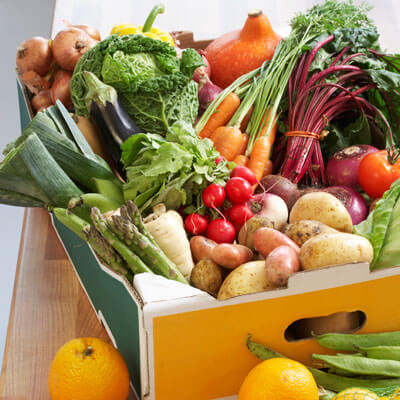 Turn on the tube or surf the Internet, and it may seem like there’s a pill for every ill. While medicine has its place, we believe eating a nutrient-dense diet is a powerful way to optimize your health.
Turn on the tube or surf the Internet, and it may seem like there’s a pill for every ill. While medicine has its place, we believe eating a nutrient-dense diet is a powerful way to optimize your health.
Evidence continues to mount that a simple change in diet can significantly reduce the risk of cancer. However, despite these findings, the subject of nutrition often falls by the wayside in discussions between medical practitioners and their patients.
The Underestimated Power of Proper Nutrition
Each year, the pharmaceutical market is flooded with numerous “cancer-fighting” drugs. Yet, research indicates that the most potent “medicine” against this dreaded disease might be found not in a pill bottle but in the produce aisle. This is the conclusion that researchers, whose findings were published in the British Medical Journal, arrived at.
They undertook a “Randomised controlled trial of the effect of fruit and vegetable consumption on plasma concentrations of lipids and antioxidants.” Though technically worded, the research paper’s conclusion was straightforward: a diet rich in fruits and vegetables can offer powerful protection against cancer.
The Study: Fruits, Vegetables, and Cancer Risk
The researchers involved in the study asked 87 participants, all of whom typically consumed three or fewer servings of fruits and vegetables daily, to increase their intake to eight servings for a duration of eight weeks. The results were astounding!
Participants’ blood concentrations of vitamin C and beta-carotene surged in line with the increased dietary intake of fruits and vegetables. The researchers concluded that antioxidant concentrations of this magnitude are likely to diminish the risk of acquiring cancer.
Medical Doctors Favor
Prescriptions Over Healthy Diet
Despite these compelling findings, medical practitioners seldom discuss dietary habits with their patients. Even fewer are inclined to prescribe a healthy diet instead of a prescription. This could be partly attributed to the education doctors receive.
As future M.D.s are trained primarily in disease treatment techniques like surgery or the myriad drugs currently in the market (over 6,000 and counting), they receive practically zero instruction in nutrition.
The good news is you can proactively optimize your health simply by adding more produce to your diet. For additional nutrition guidance, contact Network Wellness Center today!
SOURCE: British Medical Journal, June 21, 1997
